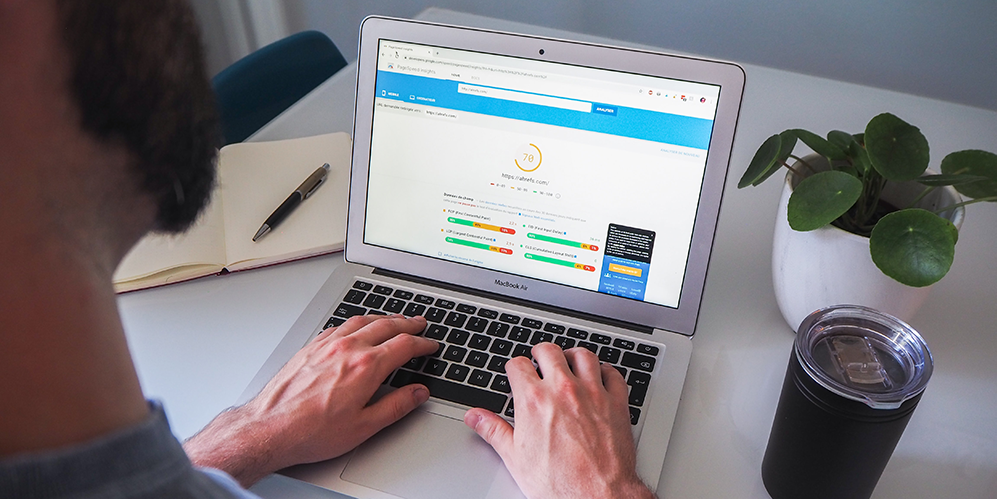
Get weekly
HubSpot updates
What are they?
In late 2015 Google released an update to their search quality evaluator guidelines, further developing their advice for how Google human search evaluators grade pages - information that is used to develop the Google search algorithm as a whole. The guidelines were first published in 2013, though the full version wasn’t published until 2015, when it was leaked out to the public.
One important concept that was present in both the condensed, and now the full version, was the concept of ‘Your Money or Your Life’ pages. These pages are considered very important by Google, because they could impact the health, happiness or wealth of users. A few examples of these pages include:
- Shopping websites
- Financial information websites
- Medical information websites
- Legal information websites
- And other types of pages that could affect the health, wealth or wellbeing of users
These pages are rated very stringently, as low quality YMYL pages could have a negative impact on users. For more information you can go to page 9 of Google’s Search Quality Evaluator Guidelines
This seems quite obvious when you think about it. Google want users to have a good experience using their search engine. If the results take them to a poor quality page, that’s an inconvenience to the user. If the search results take them to a poor-quality shopping page, they may find themselves wasting their money, and having a very negative experience, much worse than simply being inconvenienced. As such, Google search raters and the Google algorithm hold these pages to a more stringent set of guidelines, for the benefit of users (and indirectly, Google themselves).
How is a site rated?
Page raters move through the site, analysing each page, identifying the purpose of the page as well as how the content on the site is used to achieve this purpose. They analyse a range of factors, including the content on pages, volume of advertising, reputational information and the level of expertise, authoritativeness and trustworthiness.
Expertise, Authoritativeness and Trustworthiness
These three components are an important criteria in the ranking of a page.
Expertise
- What are the qualifications of authors writing on the site?
- What is the level of expertise of other articles on the site?
- What is the level of expertise of other work produced by them?
Authoritativeness
- Are they an authority in the industry?
- Do others link to them or quote them?
Trustworthiness
- Is the site trustworthy?
- Does it seem secure - through payment gateways etc?
A high quality page will display all of these qualities and Google’s algorithm is also tuned to pick these up. The importance of backlinks shows through in how these three are measured by Googlebot, which uses link metrics to help determine what it believes the expertise, authoritativeness and trust of a site to be.
YMYL pages are tested especially stringently, which means that the page needs to showcase these attributes. As an example, on an eCommerce website the page would need to have a secure way to pay (trustworthiness), factual main content (expertise), and relevant backlinks (authoritativeness).
Types of content
Content on a page is divided down in the guidelines into three different types. Main content, supplementary content, and advertising.
The main content is what helps the page to achieve its purpose. Supplementary content helps to improve the user experience, but does not directly help the user achieve their goals. Advertising is just that, advertising.
In order for a page to rank highly, the main content needs to be high quality, providing the user with plenty of relevant information. All assets in the main content need to be functioning, and easy for the user to use. Googlebot will be checking through the main content of your pages as well, looking for relevant information, using the main content to determine the purpose of the page.
Using the eCommerce site example for a YMYL page once again, a high quality site should provide product information, specifications, reviews, product images, as well as information on shipping, returns policy, warranty etc. The more relevant and useful information that is provided, the higher quality the page is.
Reputation information
Reputation information comes from information on external sites about the company, including reviews left by customers. If the reviews are negative or positive, search raters take this into account, and it can be assumed Googlebot is doing much the same.
Reputation information needs to be monitored, with comments and reviews responded to and otherwise managed. If there are a large amount negative reviews, reputation management might become a necessity to improve this.
Mobile-friendliness
Mobile-friendliness is also a critical part of rating a site. Sites need to be usable on mobile, and information needs to be clear and easy to locate on these devices. With more and more users browsing the internet on mobile, adapting your site to be mobile-friendly is a critical task for any site that wants to rank well and provide a good user experience.
YMYL pages need to be mobile-friendly, with fast load times and a good user experience. Users will need to be able to achieve the goal of the page, while being able to clearly access as much relevant information as possible.
What can you do to improve your pages?
The best way to ensure that your YMYL pages rank well is to focus on them, following the guidelines above to ensure that they have high quality content, relevant information, provide a good user experience, and have a strong backlink profile.
However, you will need to make sure that the rest of your site also meets these standards, with high quality content and expert, trustworthy and authoritative information, making sure the site, as a whole, meets these high standards. This will help the site to rank better overall, and will hopefully improve the number of backlinks to the site, helping to further improve the website’s authority.
To do this, making a combination of on-page changes to improve the amount of information offered, the mobile-friendliness of the site and the user experience, combined with off-page techniques such as improving the backlink profile and receiving favourable reviews will help the ranking of these pages. Above all else, make sure that your work on these pages is of the highest quality, and that they take priority when you analyse and improve your site.
